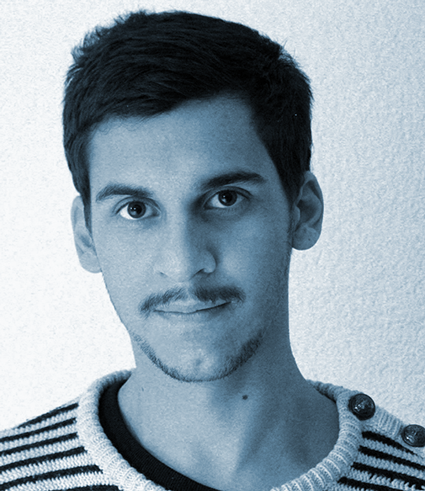
Graillat Valentin
Another kind of Smart-Home: A Critique of the Techno-Domestic Ideal, the Design of Alternative Domestic Ecologies. A Critique of the Intelligence of “Smart-Homes” in the Field of Research in Design. Supervised by James Auger (CRD), co-supervised by Emanuele Quinz (EnsadLab). Since September 2022.
Another kind of Smart-Home: A Critique of the Techno-Domestic Ideal, the Design of Alternative Domestic Ecologies.
Overview of PhD
Lauded by techno-scientific discourse since its inception, the smart-home, which in French translates to domotique gives an etymological designation of “science of the home”, revealing a programmatic essentialisation of the domestic sphere. The automatisation and the dematerialisation of the functioning of the home feed into a technological imaginary in which the cultural, social and environmental motives are rarely articulated. The expression “smart-home” obfuscates the development and discussion of the idea of a domestic “intelligence” within the field of design. Developed within the United States between the 1930s and the 1970s, early interior design projects, or “visions of the future” (the home of tomorrow, the home of the future, or utopic homes) constituted fertile ground for the technological approach that we have inherited. While these domestic images may not yet be popular on the market, they do constitute ‘powerful and memorable virtual images’ (Banham) that are sure to determine normative and rational behaviour. These techno-utopian visions were to have a particularly decisive impact on their practical application on the threshold of the 1970s and 1980s, in the form of integrated programmes, home automation and interfaces.
Will the notion of smart-home that we inherit become the basis for a conception that revolutionises our anticipated futures? Is such a paradigm, designed to make disembodied, dematerialised ways of living desirable, reconcilable with the social and environmental challenges we face? In this respect, the advent of the smart-home appears to be the nerve centre of a crystallisation of imaginaries. The debates that arose on this subject from the meeting of different ideological positions from the European avant-garde and a post-war consumer society, allowed for the emergence of alternative propositions for interiors, drawing on other forms of domestic “intelligences”. It is in light of these radical visions from a recent past that we are drawn to reconsider the conception of our contemporary smart-homes. Here I put forward the hypothesis that we are experiencing a period of transition in which designers concerned with the object and the inhabited environment the opportunity to take up the anticipated interior project once again as a place to reflect on our domestic lives.
PhD supervisor:
AUGER James (CRD), ED SSH n°629 de l’Université Paris-Saclay à 50%.
Co-supervisor:
QUINZ Emanuele (EnsadLab) à 50%.
Funding:
Thèse en recherche-projet, en 3 ans, financée par l’École Normale Supérieure Paris-Saclay via un contrat doctoral spécifique normalien (CDSN).
Date of enrolment : september 2021
Date of vova voce : autumne 2024
Curriculum Vitae



